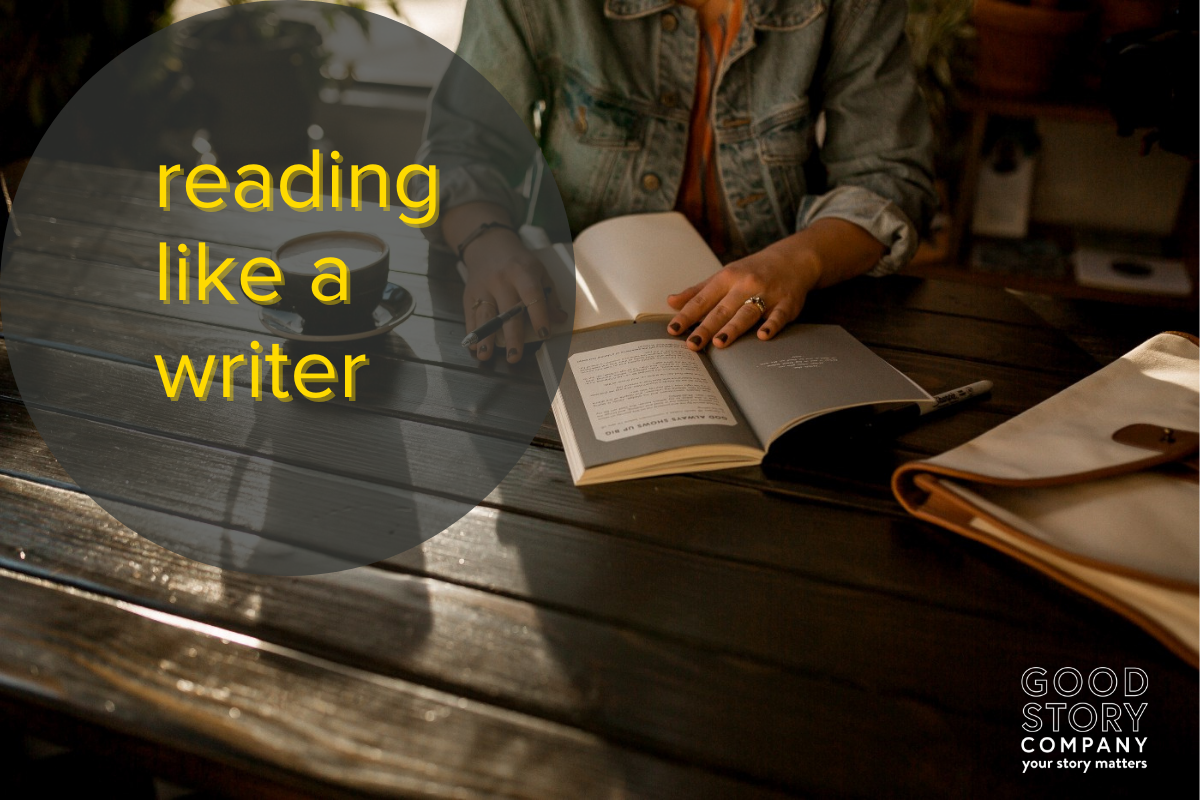Reading Like a Writer
If you’re struggling to figure out how to write a good story, you might want to consider coming at it from a fresh angle: reading like a writer.
What does reading like a writer mean? It means that you’re not picking up a novel to mindlessly escape for an hour, unfortunately. Most writers love to read, and most of us read a lot. But whether we’re reading like a writer or reading like a consumer of fiction makes a big difference in what we get out of that hour with a novel.
It’s not as fun as lounging with a beach read, but reading like a writer is worth it!
We’ve been reading what’s hot on the market for some time now. We like picking diverse, recently published books by authors across categories. We’re writers and editors in the industry, and we try to read like them, too!
Going forward, we’d love to invite you to join us! It’s time to share the book love.
What is reading like a writer?
When you’re gathering information on how to write a good story, start by selecting some excellent books in your genre. Books that sell well, ones with starred reviews, award-winning novels—the kind of book you would like to produce. We recommend a lot of writing resources to aspiring authors, and many of them are wonderful teaching and diagnostic tools, but sometimes, studying a novel that pulls off what you’re trying to accomplish can be the best resource. If your WIP has multiple points of view, an epistolary format, an obscure historical setting, or a lot of technical information, try to select published novels that include those same elements. I recommend purchasing physical copies of these novels, since marking them up helps me learn. Highlighting an ebook doesn’t work the same way, for me.
Reading like a writer means paying attention to the book. Think of the novel as a text in a class. You are there to study it and to learn from it (enjoying yourself is just a bonus). Since you don’t have an instructor to point out what’s working, craft your own questions.
What kindS of questions?
When you get to the end of a chapter and feel compelled to turn the page and keep reading, stop. How did the author achieve that? Why do you want to keep reading? Are you desperate to find out what happens next? To see how a character reacts? To learn more about the setting?
When you find yourself re-reading a passage to savor the words, stop and highlight those sentences. Why are they so beautiful? Is it the vocabulary choice, the sentence structure, the emotion laced through it? Do you want your readers to stop and soak up your prose, or does that detract from the page-turner your novel is supposed to be?
I like to look for humor, because that’s one of the hardest things to pull off, in my opinion. When you laugh out loud, stop and look at why it’s funny. Is it the situation in general? Is it the character’s wry take on the situation? Is it a preoccupation a character has with a subject that doesn’t relate to the current scene? Is it the way characters react to the humor—or the way they don’t react?
Look at storytelling choices and ask yourself why the author used them. These choices will show you how to write a good story. What does it add to include this other point of view character’s perspective? How are the voices of the characters distinct? Does every scene advance the plot? If not, what does it do? Does this author lean on exposition or dialogue to reveal character? Why does it work?
How are the subplots connected to the main plot? If you’re feeling tangled up in your own elaborate plot and can’t figure out how to braid them all neatly at the end, it might be worth marking every chapter in your mentor text with a different color, depending on the subplot it focuses on, and then looking at that overall pattern. How much time is devoted to each subplot? When do they start to come together? Do the characters ever intersect, or do they remain separate until the climax of the story?
Stop at the end of a first chapter and think. How does the writer make me care? What is hooking me into the story? There is no right answer to this question, but there are many different avenues to catch a reader’s attention. Is it a fantastic world, full of a sense of wonder? Is it a character full of spunk or so downtrodden and sweet that I am rooting for their success? Is it lovely prose? Is it an intriguing situation?
The questions you can ask a mentor text are endless. Most importantly, you curate them. What are your struggles with your WIP? Look to see how other authors have accomplished what you are learning to do. Come up with your own list of questions for a curated course in how to write a good story.
Did you notice how many times I said to STOP in these last few paragraphs? Reading like a writer means methodical, slow study. It means paying attention. It means diagramming a book, looking at all the instances of humor or heart or rising tension. And then doing that in another book. And another. And another. It means analysis. It means work! But it is work that will pay off and help you learn how to write a good story by reading like a writer.
Join the Good Story Book Club, where the team comes together to talk about what we like and don’t like, and what works and what doesn’t work. We’re writers and editors in the industry, and we try to read like them, too!

